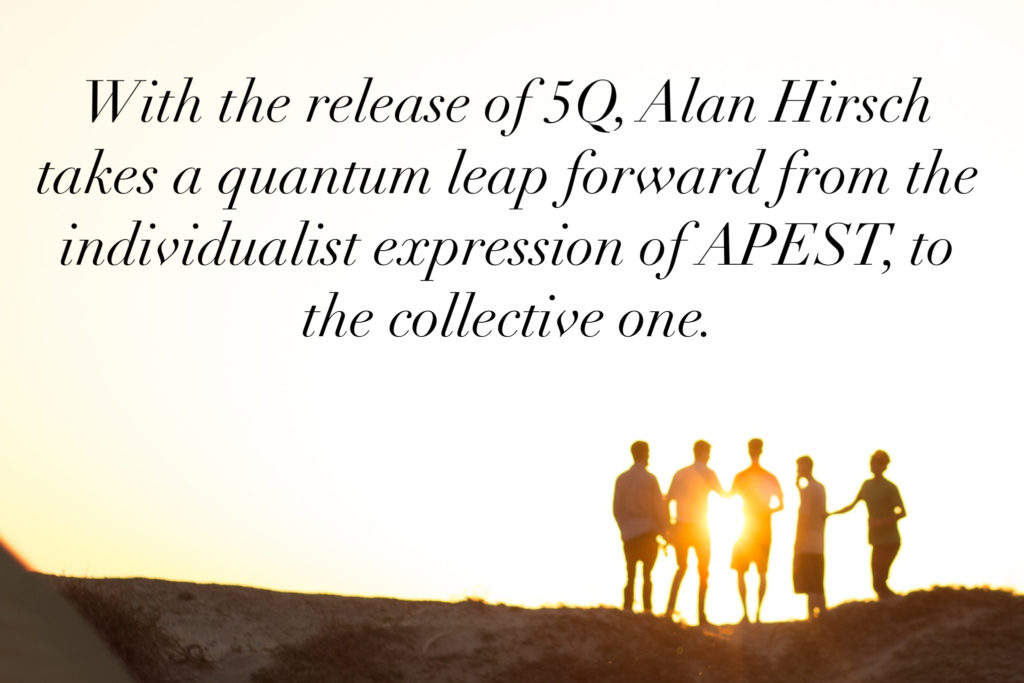As the 5Q Symphony continues to grow, this week we are happy to introduce Jessie Cruickshank. Jessie is apart of the 100Movements team and has co-written the upcoming workbook to help you really get 5Q going in your Church or Organization Activating 5Q.
The foundational and constitutional text for the church’s five-fold ministry is Ephesians 4:11-13. When considering the text of these verses, we often readily acknowledge and agree with the stated goal of ‘unity in our faith’ and ‘maturity in Christ.’ But heretofore, the Western church has often considered unity and maturity as separate and distinct concepts though scripture regularly correlates the two (Ephesians 1:10, John 17:23, Colossians 3:14). The notion of maturity apart from unity has created a blind spot for us regarding the five-fold ministry, which is only now being uncovered and challenged.
[bctt tweet=”Unity and Maturity are not meant to be practiced separately in the Church ” username=”@5QCollective”]We live in a highly individualized society. We think about ourselves as being separate and distinct from others. The space between us and others are our relationships, which are negotiated, full of boundaries and complex social contracts. Our individualization is even encoded in our brains. Research has shown that for Americans, we often think about ourselves, and that this is a distinct function from thinking about other people1.
It’s All About Me, Jesus
This individualized mindset is the filter through which we interact with everything – people and ideas. It is also the way we think about our faith, Jesus, and APEST. We live out an individualized version of Christianity. We make a personal decision for Jesus. Many consider their faith to be private. And we view our relationships with the church and other Christians from an ego-centric point of view. (Where am I being fed? What has God called me to do?)
[bctt tweet=”5Q frees the Church from an anemic, individualistic version of Christianity.” username=”5QCollective”]This individualized mindset has also highly limited our understanding of APEST. When people hear about APEST, their usual line of thought is to first wonder who they are and what is their role. There is nothing wrong with this, but this is as far as the APEST conversation has come – until now. With the release of 5Q, Alan Hirsch takes a quantum leap forward from the individualist expression of APEST, to the collective one. And our understanding as believers must take that jump as well.
Phasing Between Functions
We must move beyond thinking about APEST through the lens of ‘my role’ and ‘my function’ to how we work together as living stones that make up a house, or parts that make up a body. If APEST is in the DNA of the church, then we must also remember that circumstances dictate how DNA is read and interpreted by the body. Depending on what environment you encounter, your genes turn on and off. The same is true of APEST – depending on what season and place you are serving in, you will grow and express different functions of the APEST capacities.
This means that ‘your role’ and ‘your function’ is not static. It is dynamic and it changes. For example, I score high in the apostolic, prophetic, and teacher capacities. But what functions I serve and what voice I use depends on the situation I am in. If I have leadership authority, I often operate in my apostolic capacities. If I am serving and coming underneath the leadership of others, I operate as a teacher. If I do not have an official avenue to facilitate change and development, I can take on the voice and heartache of the prophetic. How Jesus uses me depends on the assignment. I have also learned that I am there to complement what is already present by being willing to serve in the capacities that are missing.2
[bctt tweet=”How Jesus uses me depends on what Jesus asks me to do #APEST #5Q” username=”5QCollective”]Being A Gift For The Body
 What I mean is that rather than thinking about myself, I am thinking about the group I am serving with and looking for a holistic expression of APEST. What functions are being expressed by the group? What is missing? What I can bring and add? I think about the group as itself a living organism, needing all parts to operate at full capacity. I see myself as an organ in that living being, not something that exists apart from it. This is vastly different way of approaching APEST than has been discussed in the past. It requires the quantum leap of thinking about the church as a body in which believers are cells, organs, and living stones who find out who they are and discover their meaning and purpose by being together.
What I mean is that rather than thinking about myself, I am thinking about the group I am serving with and looking for a holistic expression of APEST. What functions are being expressed by the group? What is missing? What I can bring and add? I think about the group as itself a living organism, needing all parts to operate at full capacity. I see myself as an organ in that living being, not something that exists apart from it. This is vastly different way of approaching APEST than has been discussed in the past. It requires the quantum leap of thinking about the church as a body in which believers are cells, organs, and living stones who find out who they are and discover their meaning and purpose by being together.
The more we are able to move beyond an understanding of APEST as individualistic expressions (of role, title, office, etc…) and understand it as the collective expression of a group, the more we will move towards the goals of unity and maturity stated in Ephesians 4:13.
1This is not true for those in other cultures, particularly Asian cultures. The same research study that found the above distinction in the thought processes of American’s thinking about themselves and thinking about others also studied Chinese adults. For these adults, there was less of a distinction between thinking about themselves and thinking about others. When they thought about themselves, they thought about others also. See Immordino-Yang, Mary Helen. 2011. “Me, my “self” and you: Neuropsychological relations between social emotions, self awareness, and morality.” Emotion Review 3 (3): 313-315, and Immordino-Yang, Mary Helen, Joanna A. Christodoulou, and Vanessa Singh. 2012. “Rest is not idleness: Implications of the brain’s default mode for human development and education.” Perspectives on Psychological Science 352-364.
2You can use the Base and Phase diagram to help think about this journey has been in your life.
Hey reader, we would love to know how we’re doing. Tell us how this post has helped you along the 5Q journey. We think Jessica is really on to something pretty powerful. How about you?


